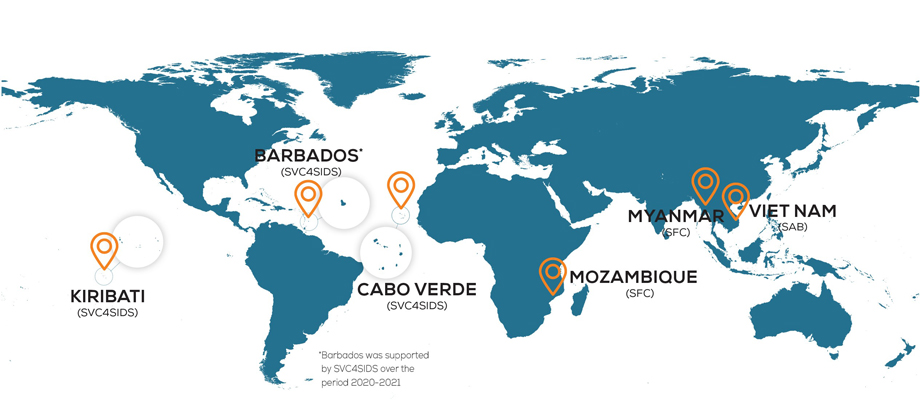Overview

With an increased global production (14% in fisheries and 527% in aquaculture), a 122% rise in total fish consumption and 59.5 million people engaged in the primary sector of fisheries and aquaculture*, fish and fishery products have become active players in improving living conditions and supporting the fight against hunger for the benefit of present and future generations. Many steps have already been taken and many challenges still need to be faced on the way towards a more sustainable, innovative and collaborative fisheries and aquaculture sector, with a glimpse at global impacts and a special focus on those countries whose economies strictly rely on this sector. Within this framework, the Government of the Republic of Korea, represented by the Ministry of Oceans and Fisheries, and the Fisheries Division of FAO started a collaboration, which leads to the implementation of the Korea FAO Sustainable and Innovative Fisheries and Aquaculture Programme (KOFAP) and its three projects:
- Smart Fisheries Co-Management (SFC),
- Sustainable Fish Value Chains for Small Islands Developing States (SVC4SIDS), and
- Smart Aquaculture Biosecurity (SAB).
Under the 3 common keywords of sustainability, innovation and collaboration, the projects will focus along their life on how to contribute to enhanced livelihood and social opportunities, better management mechanisms, more efficient market access, improved production practices.
(* Data refer to the period 1990-2018 - Source: FAO. 2020. The State of World Fisheries and Aquaculture 2020.)
Who benefits from the KOFAP activities?
KOFAP aims to strengthen the fisheries and aquaculture sector by promoting the development, the innovation and the collaboration through all the fishing segment. In order to promote improvement and changes to bolster existing realities and to support the growth of new ones, KOFAP seeks at engaging a more direct contact with all the fisheries stakeholders, as well as resource users within a framework of a more effective governance. A reinforced collaboration with fishing communities, associations and enterprises, government agencies, academia, CSOs and NGOs is the way towards a better strategy for food security, improved livelihoods, more efficient and enhanced working conditions, and equity for all.
To leave no one behind, we must support fishing communities, provide aid and technical assistance and, if necessary, new tools and capacity support.
Target countries
Some target countries have been selected to conduct the first projects interventions

The boundaries and names shown and the designations used on these map(s) do not imply the expression of any opinion whatsoever on the part of FAO concerning the legal status of any country, territory, city or area or of its authorities, or concerning the delimitation of its frontiers and boundaries. Dashed lines on maps represent approximate border lines for which there may not yet be full agreement.
For more information, please visit the projects websites:
- http://www.fao.org/in-action/smart-fisheries-co-management
- www.fao.org/in-action/svc4sids
- http://www.fao.org/in-action/smart-aquaculture-biosecurity

